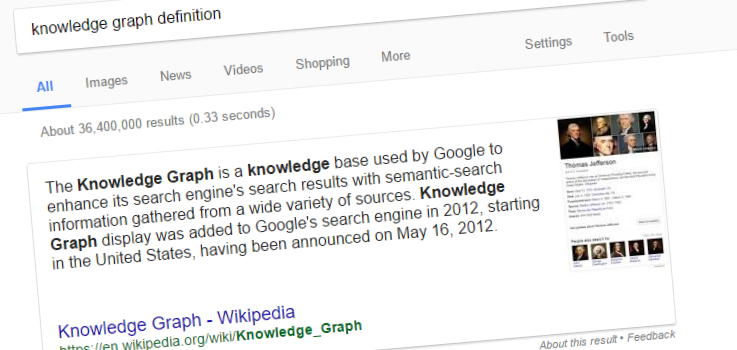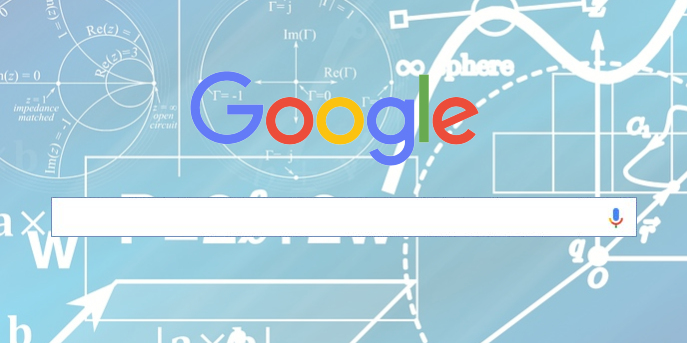
A recent study by Seige Media has examined the top 50 search term "stems" to find which resulted in more clicks, or higher "Click-Through Rates" (CTR). These include words like "translation", "definition", "where is" and "how to", which only have real meaning when the are coupled with other keywords, but easily indicate the searcher's intent to Google.
If you are a frequent user of Google, and most of us are, you will be aware that some time ago it started answering some of our queries directly, without making it necessary to visit another website for the answer. Google accomplishes this using something called the "knowledge graph", which collates facts and information about people, places and subjects from a variety of websites. Because of this, it is now possible to see a significant ranking improvement without actually seeing an increase in traffic to your website. In the following example search for "knowledge graph definition" you will see that it's suddenly much less likely that the searcher will feel the need to click on a search result to find out more, because the answer is already presented to them:

Of the 50 popular search term stems examined, "translation" performed the most poorly, with only 19.45% of searches resulting in a click. Other poor performers included "population" (25.27%),"definition" (26.03%) and "stock price" (30.81%). At the other end of the scale, the stems with the highest number of clicks were "coupons" and "recipes" - with both generating more than one click per search. What this means is that Google is more able to provide an instant answer to quite basic queries involving populations and stock prices, but is currently less able to immediately give the searcher what they want when they are looking for coupons or recipes.


